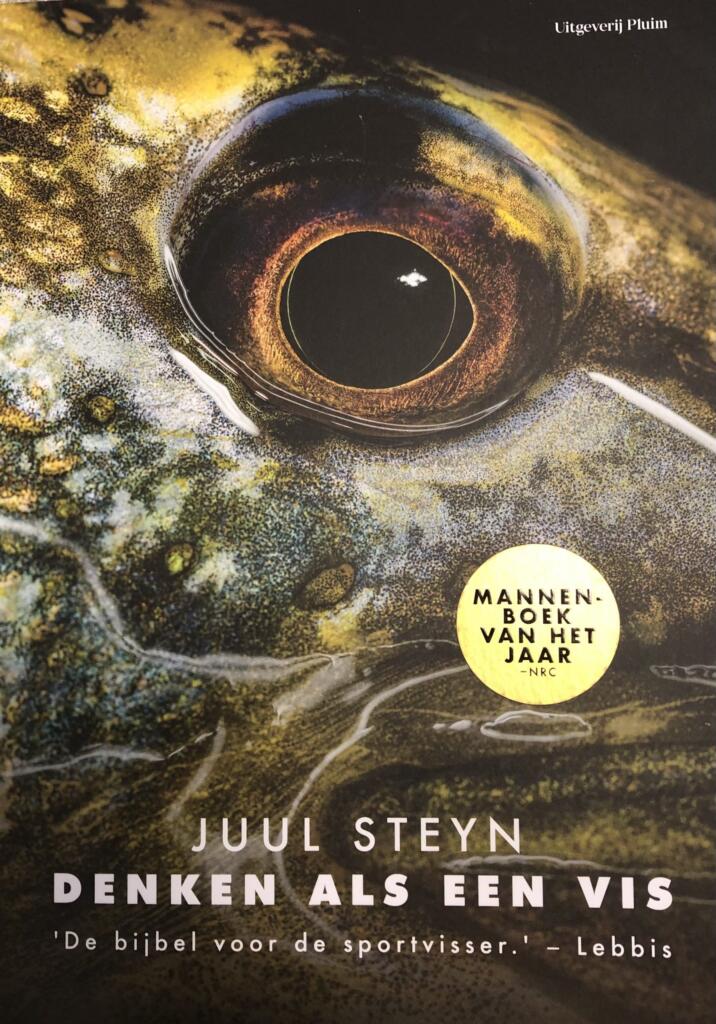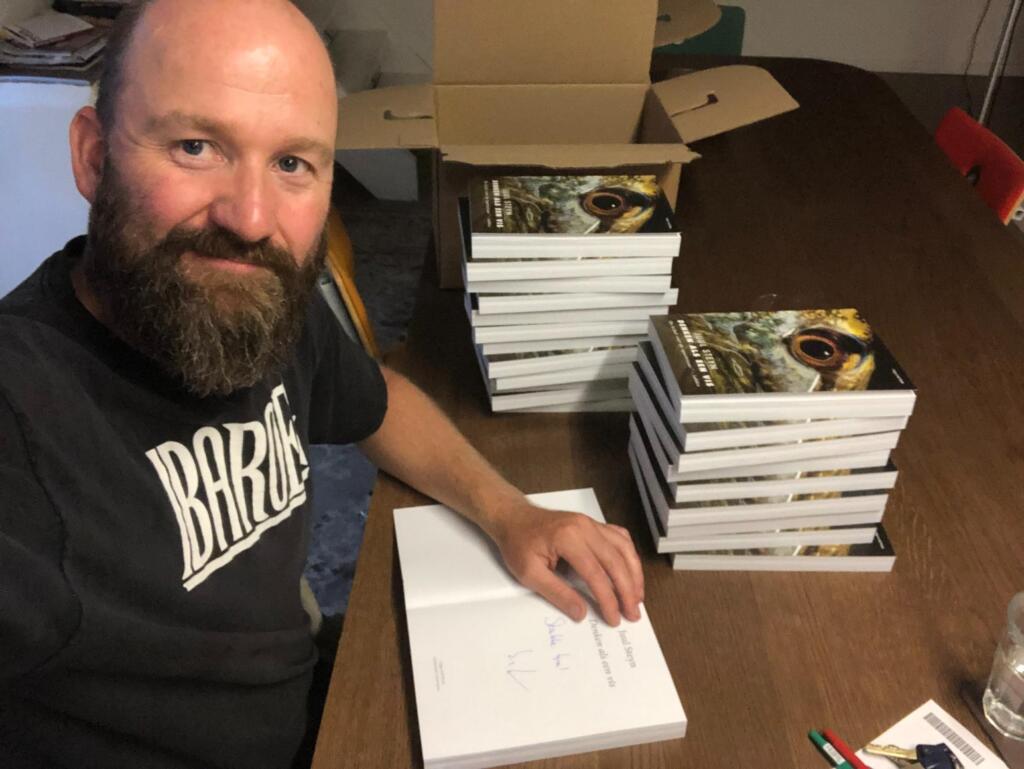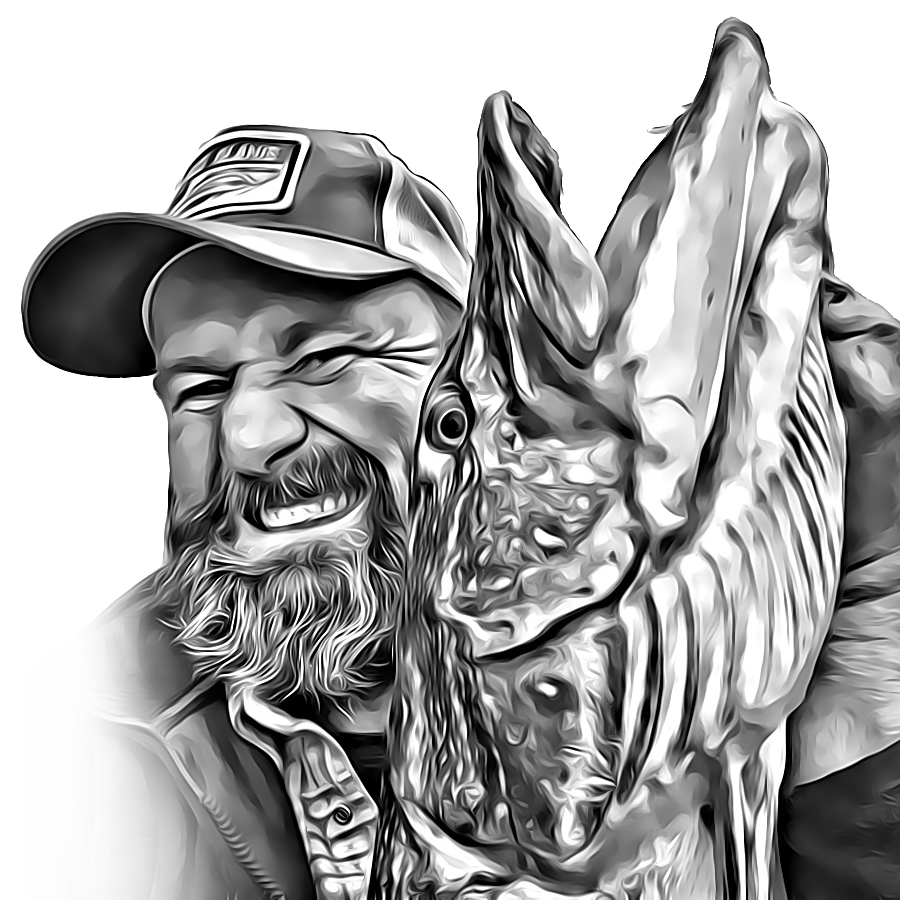It’s hard to believe, but it’s already been five years since my book Denken als een Vis (Thinking Like a Fish) was first published. In the meantime, the fourth edition has hit the shelves. Guests often ask me if the book is available in English, and unfortunately, the answer is still no. Sorry for that, but let me at least give you a quick overview of why I wrote it, and what it’s about—so you’ll have a clear idea of the story behind it.
Back in 2019, everything clicked for me. Five years before, I traded my job as fishing guide in Amsterdam for several start-ups in search of the next big thing. The truth? That big thing never arrived, and I learned that I’m no born entrepreneur. Office life drained me — outdoors is where I belong.
Yet, I kept on going, trying to make it work, until one day I had a small (thankfully benign) spot of skin cancer removed from my forehead, and it made me rethink my life. I realized I didn’t belong in an office—I needed to return to the world where I truly feel at home: the world of sport fishing. I sold my shares, said goodbye to my daily rendez vous with my computer screens, and finally gave myself the chance to work on a long-held dream: writing a book about predator fishing in the Netherlands. This was the unfinished chapter I needed to write before I could fully embrace my career as a fishing guide again.
The magic of fishing picked up by national media
My background as a journalist came in handy. I had interned at Dagblad Metro, worked as an editor at Beet (a renowned Dutch sport fishing magazine), and eventually became editor-in-chief of Het Visblad—with a circulation of 550,000, the second-largest magazine in the Netherlands. Still, writing a book turned out to be a very different craft than producing magazine articles or daily news pieces. Luckily, I had great support from my publisher, Uitgeverij Pluim. Director Mizzi van der Pluijm was immediately taken by the magic of fishing and the enthusiasm I brought to it. After nearly a year of writing, rewriting, and fine-tuning, my book was released—and it became an instant success.
The timing helped: the COVID pandemic had just started, and half of the country was desperate to get outdoors. Fishing was the perfect escape. National media picked up on the book, with various interviews, such as in ‘Met het oog op morgen’ on Radio 1 and Radio 2 program ‘Spijkers met Koppen’, from 0h56m, as well as in multiple major newspapers. NRC Handelsblad even called it “the men’s book of the year.”

Catch more and Bigger Fish
So what’s the book really about? In short: it’s about more than just catching fish. It’s about the way of seeing, thinking, and feeling that makes fishing so unique. Fishing, to me, is a way of connecting—with the water, with nature, other people, and with myself. That mindset doesn’t just make the experience richer—it also helps anglers catch more, and bigger, fish.
The book focuses entirely on predator fishing in the Netherlands. Not from a boat—since those are expensive and out of reach for most people—but from the bank. That makes it relatable to 95% of Dutch anglers who target predatory fish.
I start with the magic of water itself. Water is always in motion, and fish are constantly reacting to those changes. Current, temperature, light, and oxygen all determine where predators can be found. To catch fish, you need to understand how a fish thinks—or more precisely, how it has to act in order to survive.
From there, I dive into the ‘usual suspects’: pike, zander, perch, but also sea bass, and newcomers asp, and catfish. Each chapter combines insights with personal stories, from the canals of Amsterdam to majestic rivers and the vast Dutch lakes.
Psychology and Tactics
A key theme is the psychology of the angler. Fishing is as much about patience, focus, and intuition as it is about tackle or lures. I also cover techniques and tactics—when to fish a soft bait slowly for zander, where to tickle a perch with a small crank bait, or how to provoke a strike from a pike with a spinnerbait. And of course, I talk about all the tackle that you can choose from, but I always emphasize: these are just tools. The real difference comes from your awareness, your observation, and your passion.
Fishing as a Way of Life
In the final chapters, I reflect on what fishing really means. Beyond the trophies and the big catches, the true reward lies in being outside, sharing adventures with friends, and experiencing that deep connection with nature. I even asked a doctor, a psychologist, and a sportfishing professional to weigh in on the broader social value of fishing.
Throughout it all, I write with humor, self-irony, and, above all, passion. I share my failures as well as my successes—because fishing is never about certainties, it’s about the journey.
Why Not in English?
That’s the big question. I’ve always said the book was too specific to Dutch waters, with their canals, polders, and rivers. But maybe that’s exactly what makes it unique for the thousands of international anglers who come to The Netherlands every year. It could actually be a great stepping stone for those who want to get the best out of fishing in Holland. So who knows? Perhaps one day my book will be available in English.
Stay tuned—this story might not be over yet…
Juul Steyn, 1 October 2025

‘Denken als een vis’ got a 4.9 stars review on Bol.com and a 4.6 stars review on Goodreads

Recent Comments